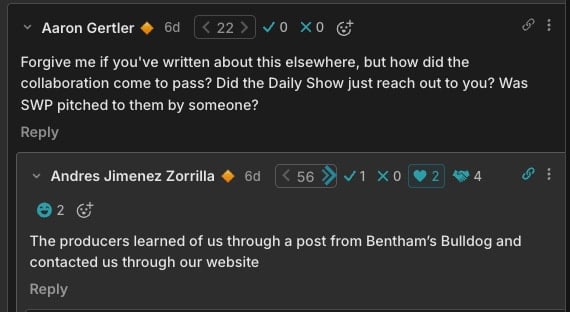Labor unions are associations of workers that negotiate with employers. A union for AI workers such as data scientists, hardware and software engineers could organise labor to counterbalance the influence of shareholders or political masters.
Importantly, unions could play a unique, direct role in redirecting or slowing down the rapid development of AI technology across multiple companies when there is a concern about safety and race dynamics. With difficult to replace expertise, they could do so independent of employers wishes.
Unions often negotiate with multiple companies simultaneously, including in industries where competition is fierce. By uniting workers across AI labs, unions could exert significant collective bargaining power to demand a pause or slower, more cautious development of AI systems with a strong emphasis on safety.
If union demands are not met, they can and in history have organised workplace slowdowns or work stoppages as a form of protest or negotiation tactic. If workers across various AI companies and countries organise together, they can coordinate slowdowns or strikes that affect multiple companies simultaneously.
If the AI safety community seeded or nurtured an AI workers union they could also help embed a longtermist culture of safety. Unions already have a proven track record of prioritising and achieving safety in various fields more effectively than employers alone. They often foster a culture of safety that encourages workers to be proactive in identifying and addressing safety concerns. Unions also often provide protection and support for employees who report safety violations or concerns. This encourages workers to come forward without fear of retaliation, ensuring that safety issues are addressed promptly.
With roots in the AI safety community, an AI workers union could advocate for AI safety in government and corporate policies and regulations with greater independence from profit-motives.
Some practical considerations and open questions:
Google tells me there are already some unions for data scientists and software engineers. However their relevance relative to the scale of the challenge is negligible. That is not to say an AI workers union is not feasible. Support for unions in the United States has risen from 65% before the pandemic to 71% in 2022, the highest support level since 1965. Whether or not that is reflective of the tech industry I cannot say.
If some countries unionise AI workers more readily than others what will the geopolitical considerations be? More harmful than good? Will restrictions on the activities of union in different countries affect the efficacy of union organising for AI safety.
Since AI workers are relatively well remunerated (what Marxists would call petty bourgeois) they may lack the class conscience to unionise. On the other hand, these workers will be well placed to contribute funding for a union to scale and punch above its weight in members. Could a critical mass of AI workers be recruited to collectively bargain effectively?
Defining the union's scope can enhance its influence and bargaining power but requires careful planning. The choice of occupations to incorporate in the union might include data scientists, machine learning engineers, hardware experts. But other workers are involved in AI-related work such as ethicists at a university, sailors shipping semiconductor by sea or policy professionals at an AI lab. Should they be incorporated?
Should a union of AI workers be its own entity, entities or part of a multipurpose union like the Industrial Workers of the World (IWW)? Should AI safety activists nurture existing data science or software unions or start their own initiatives? Do AI workers share common concerns that are distinct from those of workers in other industries?
I don't know, but these questions are possible directions those reading may want to explore and comment on.



I had explicitly considered this in drafting and whether to state that crux. If so, it could be an empirical question of whether there is greater support from the workers or management, or receptiveness to change.
I did not because I now think the question is not whether AI workers are more cautious than AI shareholders, but whether AI firms where unionised AI workers negotiate with AI shareholders would be more cautious. To answer that question, I think so
Edit: to summarise, the question is not whether unions (in isolation) would be more cautious, but whether an system of management (and policymakers) bargaining with a union would be more cautious - and yes it probably would